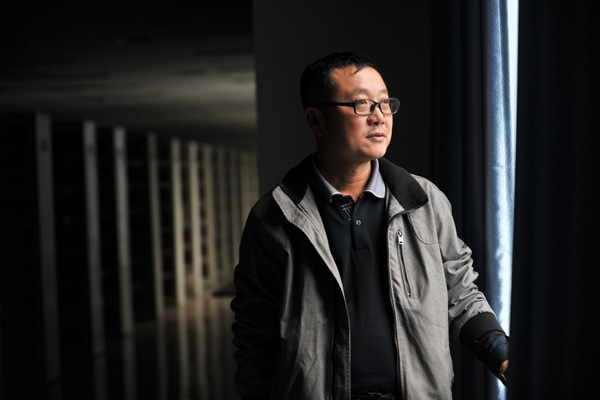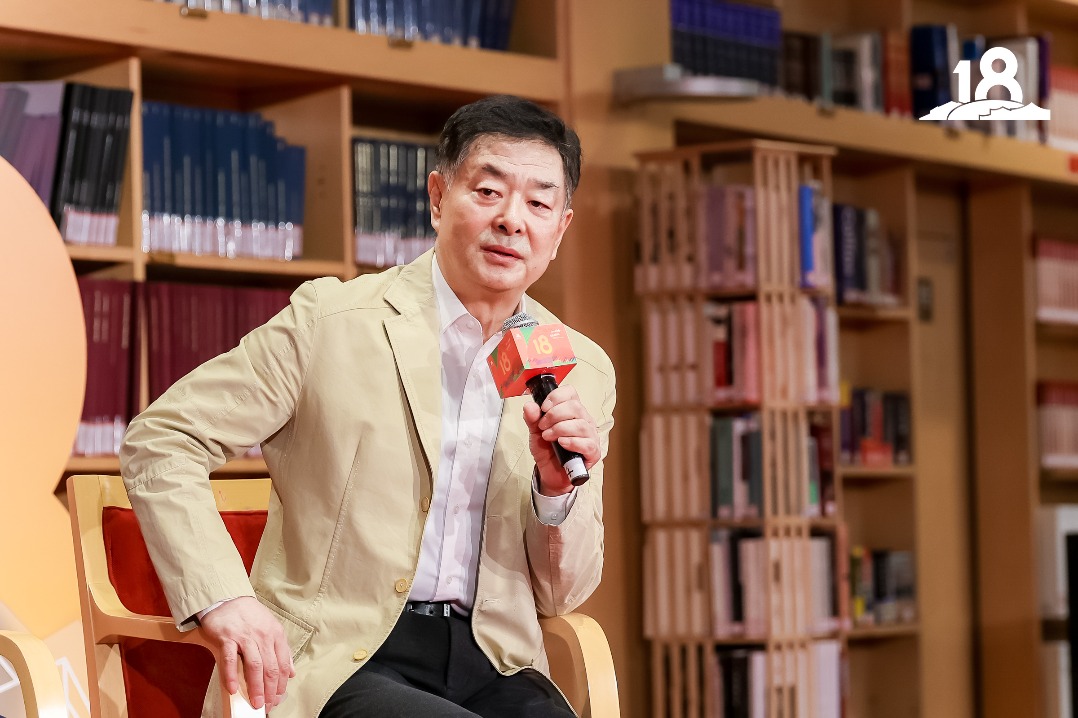A message from author: 'The words mean what they mean'


"Science fiction in China is 100 percent imported from the West. There was no science fantasy in China's long history of culture. So as a writer of science fiction I am very close to Western works. This refers only to science fiction literature, not literature in a broad sense. At present science fiction is very marginal in Chinese literature. China's realist literature is deeply rooted in native Chinese culture, but science fiction is not, which has caused my work to be closer to European and American works," Liu says.
H G Wells showed him that science fiction can reflect reality in a way that is not seen in mainstream literature, he says.
"Although my science fiction is not intended to critique reality, he left a deep impression in this regard. However, my novel is not in that genre.
Arthur C. Clarke is very pure and shows science fiction itself. He has a solid foundation in science and a rich, science-based imagination. He is deeply moved by the relationship between man and the universe and nature. His two works 2001: A Space Odyssey and Rendezvous with Rama are the most impressive for me. He used imagination to create a lifelike world. The details are vivid, which has had a great impact on my writing. I want to write such works."
Asked to analyze the difference between Western and Chinese culture, Liu argues that a key factor is how a civilization or its religion views the future.
"Religious backgrounds are where we can see the difference. Specifically, Western culture always considers the end of the world, drawing on the Bible. However, Chinese culture has no end-of-days complex and seldom considers the end of the world, so the attitudes about an end of the world catastrophe are quite different. In the subconscious of Chinese culture, human history goes forward and forward. To me it's an example of how Chinese and Western ways of thinking are different."
Chinese culture is more optimistic than Western culture, he says.
"The entire Christian background and other religious backgrounds are absent. Even if religion appears, it has not become culturally dominant. I'm not saying which one is better though."
In the second volume of the Remembrance of Earth's Past trilogy, titled The Dark Forest, the central problem with contacting an alien civilization is explained. Suppose an advanced civilization on planet A detects another civilization on planet B. Since planet A knows nothing about the motives or future decisions or capabilities of planet B, decision-makers on planet A could easily conclude that the safest course is to destroy planet B while they have the chance. Of course, planet B follows exactly the same logic.
Some see the dark forest as a metaphor for highly competitive Chinese markets.
"Commentators compared the harsh environment in which IT companies compete ruthlessly to the cosmos of The Three-Body Problem in which every civilization sees survival as its highest priority," Ken Liu, the award-winning translator of The Three Body Problem, told the website All-ChinaTech.
The dark forest is also widely discussed among international relations theorists because it closely resembles "realist" ideas that states inevitably compete to maximize their own power because they fear the power of other states.
However, Liu himself says the dark forest problem does not dominate relations between nations on Earth. Even in future interstellar relations, a dark forest is only one of many possibilities, he says.
"The relationship between different groups of human beings on Earth is very different to that between mankind and creatures from other planets. The conflict between a newly rising power and a veteran powerhouse has occurred frequently in history. However, war is not always the only solution.
"We are the same species on Earth and are more likely to understand each other. Civilizations are not isolated from each other. They can exchange and discuss many things that they do not understand. This opportunity does not exist between interstellar civilizations. The dark forest applies to beings on different stars, not between humans. This is readers' biggest misunderstanding of my book."
Problems can be solved through a peaceful approach in which everyone benefits, he says.
"I do not think there will be a massive international war."
Yan Dongjie contributed to this story.
davidblair@chinadaily.com.cn
(China Daily 12/23/2017 page14)





































